| Country | Student fee |
|---|---|
Austria 2015/16 - student fees and grants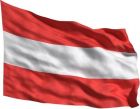 | EU students and those who are accorded the same rights do not have to pay tuition fees, and there are also no administrative fees. Austrian students, EU students and students with equal status at universities and Pädagogische Hochschule (University Colleges of Teacher Education) do not have to pay fees, but if they exceed the minimum study duration by more than a year, they have to pay EUR 363.36 per semester. Other students at Pädagogische Hochschule (University Colleges of Teacher Education) have to pay fees of EUR 363.36 per semester. Students at universities and Pädagogische Hochschule (University Colleges of Teacher Education) can be exempt from paying in cases such as studies or internships within transnational mobility programmes, illness and pregnancy. Students with disabilities may also be exempt. International students (i.e. non-EU and EEC students) at universities generally have to pay fees of EUR 726.72 per semester. Students from developing countries may be exempt from these fees according to a decision of the university. Providers of the Fachhochschulen (universities of applied sciences) are entitled to charge fees up to the maximum amount of EUR 363.36 per semester. In the case of international students (i.e. non-EU and EEC students) the providers are entitled to charge cost-covering fees, which are usually higher than EUR 363.36 per semester. |
Belgium - flemish 2015/16 - student fees and grants | The student fee has two components: a fixed amount of EUR 230 and a flexible part that differs with the number of ECTS credits followed. Each credit point carries a fee of EUR 11. This means that for a full time student (60 ECTS points) the total fee is EUR 890. The amount of fees varies with the income of (the parents of) the student. If a student is eligible for a grant, (s)he pays only EUR 105 per academic year. An intermediate tariff of EUR 470 applies for students who are almost on a grant (i.e. almost meet the income criteria linked to a need-based grant). Fees for non-EU students are determined by the governing board of higher education institutions, and may be higher than for EU students. |
Belgium - french 2015/16 - student fees and grants | Fee limits are set by the government of the French Community of Belgium. Fee levels depend on the student's financial situation. For the academic year 2015/16, the maximum fee is EUR 836, the intermediate fee is EUR 374 (for students not receiving a grant but considered as lower income) and there are no fees for those students receiving a grant. There are some differences in fees between universities and non-university higher education institutions. Until 2017 nonuniversity higher education institutions can charge complementary registration and administrative fees in addition to registration fees, but the total amount cannot exceed EUR 836/year. Those complementary registration and administrative fees range from EUR 0 (for grant holders) to EUR 179 depending on the type of programme and the financial situation of students; they apply to all students. These fees will continuously decrease until 2017 when they will cease to exist. Students from outside the EU have to pay additional specific fees. For programmes organised by university colleges and arts colleges, the additional specific fees (droits d’inscription spécifiques) are fixed by law: EUR 992 for professionaloriented programmes and EUR 1 487 for academic-oriented programmes in the 1st cycle; EUR 1 984 for programmes of 2nd cycle. For programmes organised by universities, the law stipulates that the maximum amount should not exceed 5 times the registration fees. In practice, universities (through the Interuniversity Council) adopted harmonised amounts. Those amounts differ depending on the country of origin of the students (2). The complementary registration and administrative fees mentioned in the previous bullet remain applicable to non-EU students. (2) Exact amounts are available here: http://www.ulb.ac.be/enseignements/inscriptions/frais-etudes.html |
Belgium - german 2015/16 - student fees and grants | Higher education provision exists only at ISCED 5B level. All students have to pay fees at registration. Amounts range in theory from EUR 100 to 600. In practice, nearly all students pay the same amount of EUR 450.There is no distinction made between full and part-time students. Students from outside the European Union pay the same fees as Belgian and EU nationals. |
Bulgaria 2015/16 - student fees and grants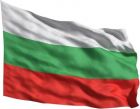 | Public higher education institutions define their own fees, but maximum amounts are set by the government. Student fees depend on the programme and field of study. The lowest fees are paid in social sciences, economics and law. The first cycle fees in the state universities for full-time studies range from BGN 300 to BGN 1 450 per year and for part-time studies from BGN 115 to BGN 1 000. Annual second cycle fees for full-time studies range from BGN 300 to BGN 1 550 and for part-time studies from BGN 115 to BGN 1 000. Certain categories of students are exempted from paying fees. They include orphans, persons with disabilities, war invalids and senior cadets in military schools. Fees of international students are subject to different rules and are generally higher than those paid by Bulgarian students. |
Croatia 2015/16 - student fees and grants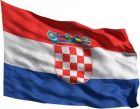 | Fees for all full-time students of the first year of both cycles are fully covered by the Ministry of Science, Education and Sports. In the following years of study, the amount of student fees depends on a range of criteria set by the individual higher education institutions (e.g. number of ECTS credits and fulfilment of particular study obligations). For some students fees are paid by government, some students pay a certain share of the fee, and some pay the full amount of the fee. [In the academic year 2014/15, full fees were covered by the government for about 40 % of students, while about 60 % of students participated in fees to some extent. The fees in both cycles range from HRK 5 000 to 10 000 per year. Part time students pay full fees. International students from outside the EU pay fees that are determined by higher education institutions, with maximum amounts regulated. |
Cyprus 2015/16 - student fees and grants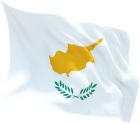 | Higher education institutions can define their own fees within limits set by the Ministry of Education and Culture. First cycle: fees total EUR 1 709 per semester (EUR 3 417 per year) for Cypriot students and for students admitted from EU countries. These fees are paid fully by the State. International students pay fees. Fees for students admitted from non-EU countries total EUR 3 417 per semester (EUR 6 834 per year). Second cycle: all students pay fees which range from EUR 4 100 to 10 250 per year. |
Czech Republic 2015/16 - student fees and grants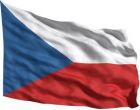 | Fees are only related to admission procedures and need to be paid once per cycle. No tuition fees are paid by 'typical' higher education students, provided that they complete their study programme in the regular timeframe. Students who exceed a regular length of study by more than one year have to pay fees. Exemptions are made for students who become parents during their studies. The fee amounts to at least CZK 8 790 /academic year, based on the average cost of a student for the public budget. No maximum is set by law. Students who study in second or further degree programmes have to pay fees (maximum CZK 2 666/academic year). Students of study programmes in a foreign language also have to pay tuition fees and no maximum limit is set by law. Such arrangements are decided by each higher education institution. Fees for international students are the same as for home students, as long as they study in the Czech language. |
Denmark 2015/16 - student fees and grants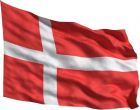 | No fees for national and EU full-time students. All students studying in part-time courses pay fees set by higher education institutions, with a minimum of EUR 268. International students pay fees set by higher education institutions. |
England 2015/16 - student fees and grants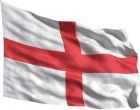 | 1st cycle full-time – fees are set by institutions and capped at GBP 9 000 for institutions with an approved access plan (to safeguard fair access for low income and other under-represented groups) and GBP 6 000 for institutions without an access plan. The average fee for 2014/15 was GBP 8 601 before fee waivers (discounts offered by institutions) and GBP 8 448 after fee waivers. Students are not required to pay up front and can apply for a loan to cover the full fee. Repayments are income-contingent and are set at 9 % of earnings above the threshold of GBP 21 000; interest rates are Retail Price Index plus 3 %. 1st cycle part-time – fees are set by institutions and capped at GBP 6 750. Students studying a course of at least 25 % intensity are not required to pay up front and can apply for a loan to cover the full fee. Repayments as for full-time students. 2nd cycle – fees are unregulated and vary widely. The ‘most common’ shown (GBP 4 052) represents an indicative fee level for research students in 2014/15 set by Research Councils UK. For 1st and 2nd cycle international students fees are unregulated. |
Estonia 2015/16 - student fees and grants | Since 2013/14 higher education institutions (HEIs) have the right to charge study fees under certain conditions in both cycles. All full-time students who achieve 30 ECTS per semester and 60 ECTS per year in the Estonian language curriculum can study without paying any fees. If a student receives fewer credits, HEIs have the right to charge for any ECTS missing from a 100 % study load. The maximum cost of one ECTS is EUR 50. Exceptions are made in arts, medicine, veterinary, dentistry (EUR 100) and in aircraft piloting (EUR 120). HEIs thus have the right to demand compensation of study costs from part-time students or students studying in other languages than Estonian. Exceptions are made for certain groups of students including disabled students, students who are parents or guardians of a child under the age of 7, and parents of a disabled child. All students enrolled before 2013/14 can continue to study according to the previous state-commissioned studyplace system until 2015/16. |
Finland 2015/16 - student fees and grants | No student fees.
|
France 2015/16 - student fees and grants | The amount of fees per year fixed by the Ministry of Higher Education and Research is EUR 184 in the first cycle (L1, L2, L3) and EUR 256 in the second cycle (M1, M2). In addition fees of EUR 215 per year, irrespective of the cycle of studies, are charged to all students aged 20-28. These fees are related to the social security system. A number of universities have decided to add associated costs related to specific services (e.g. for diplomas related to continuing learning and training). In some public universities, depending on the type of studies and the qualifications acquired, the fees can reach more than EUR 2 000 per year. Fees in the grandes écoles and engineering schools vary, but the most common amount is EUR 600 per year – not including fees related to social security and partnerships with universities. Tuition fees in some institutions reach up to EUR 10 000 per year, depending on family income. However, there are also grandes écoles which not only deliver education without charging fees, but may even pay some students (such students are prospective civil servants and receive a wage from the State), e.g. in école polytechnique and écoles normales supérieures. Students who receive a grant (34.7 % of the student population in 2014/15) are exempted from fees. Non-EU students pay the same fees as those from within the EU. |
Germany 2015/16 - student fees and grants | In all of the German Länder, studying is free of charge for both full-time and part-time students. Lower Saxony was the last land to give up tuition fees, which it did in 2014/15. In the majority of Länder, low administrative fees are charged to all students. Students in five Länder are liable to pay fees when exceeding the regular study period. Students from outside the EU and EEA countries also do not pay fees. |
Hungary 2015/16 - student fees and grants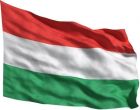 | There are two basic types of financial statuses for students: state-funded and self-financed. Higher education institutions (HEIs) stipulate the amount of fees per semester for each programme based on costs and in accordance with a government decree providing a minimum and a maximum fee for the different levels and fields of study. Fees are charged to self-financing students. State-funded places are awarded through a centralised admissions procedure to students on the basis of their academic performance with preferment to disadvantaged students and students with disabilities. In 2014, 63 % of places were state-funded. The fees range from HUF 230 000 to 1 600 000 in the 1st cycle and from HUF 450 000 to 1 900 000 in the 2nd cycle. The fees are between HUF 300 000 and 2 700 000 in undivided master programmes. |
Iceland 2015/16 - student fees and grants | All students at public higher education institutions pay administrative registration fee of ISK 75 000 per academic year. Over 80 % of students at 1st and 2nd cycle study at public higher education institutions. The same rules apply to international students. |
Ireland 2015/16 - student fees and grants | For the first cycle, full-time EU students are exempt from full tuition fees if they are first-time undergraduates, hold inter alia EU/EEA/Swiss nationality in their own right, and have been ordinarily resident in an EU/EEA/Swiss state for at least three of the five years preceding their entry to an approved third level course. However, these students nevertheless pay a 'student contribution' of EUR 3 000 per academic year. Full-time EU students who do not meet the terms of the 'free fees' scheme must pay a consolidated fee covering both tuition fee and student contribution – the average EU consolidated fee is EUR 6 000. For the second cycle, the majority of students pay tuition fees that are set by higher education institutions, and that may reach EUR 30 000 per year. Part-time fees are generally half of full tuition fees for full-time programmes. In both cycles, international student fees are generally two to three times higher than those of full EU fees and are set by the higher education institutions. |
Italy 2015/16 - student fees and grants | Higher education institutions (HEIs) define the fees at the beginning of the academic year and they differentiate them according to the students' socio-economic background, field of studies, cycle, study status – full-time or parttime – and year of registration. Furthermore, HEIs are obliged to exempt students benefiting from student support, and they can also exempt some students on the basis of merit. The overall amount of fees at the end of financial year should not be higher than 20 % of public funding. The Ministry responsible for higher education sets the amount of the minimum fee for enrolment. For the academic year 2015/16, it is EUR 199.58. The fee amounts shown in the diagram are calculated on the basis of the most recent statistical data available (2013-2014). International students pay the same fees as national students. |
Latvia 2015/16 - student fees and grants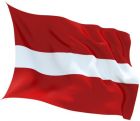 | Students studying on state subsidised places do not pay fees. 63 % of 1st cycle students and 49 % of 2nd cycle students pay fees (2014/15). The majority of students, including those enrolled in evening courses, distance courses or courses offered jointly with other universities pay fees.Fee amounts vary by field and course load. Each higher education institution (HEI) can set its own fees. Fees are lower in regional HEIs and highest in the capital Riga. The fees range from EUR 1 280 to 7 000 per year for fulltime studies and from EUR 700 to 2 700 for part-time studies in the 1st cycle. In the 2nd cycle, fees range from EUR 1 080 to 8 626 for full-time studies and from EUR 880 to 12 500 for part-time studies per year. For short-cycle tertiary education or college programmes (ISCED level 5), the fees range from EUR 555 to 7 400 for full-time studies per year and EUR 570 to 2 422 for part-time studies per year. Fees in a long-cycle programmes (medicine, paediatrics, dentistry) varies from EUR 2 800 to 11 500 per year. The amounts of fees for international students may differ in some study programmes (e.g. medicine, dentistry, engineering) and are usually higher. Students from EU and EEA are treated as home students. However, fees for studying in programmes provided in the English language are usually higher than of the programmes with the Latvian language of instruction. |
Liechtenstein 2015/16 - student fees and grants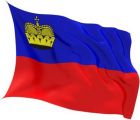 | Higher education institutions define their fee systems autonomously. All students (including the international ones) at the University of Liechtenstein pay an annual fee of CHF 1 700 (CHF 850 per semester). |
Lithuania 2015/16 - student fees and grants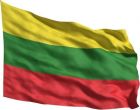 | Students studying in state subsidised places do not pay fees. There are exceptions if students change their study programme. All fees are determined by Government and vary depending on the study programme (influenced by study field) or the form of study (full-time/part-time). First cycle fees range from EUR 1 053 to 11 587 per year in full-time studies and between EUR 702 and 7 725 per year in part-time studies. Second cycle fees range from EUR 2 242 and 12 581 per year in full-time and from EUR 1 495 to EUR 8 387 per year in part-time studies. Higher education institutions (HEIs) can set different fees for citizens of non-EU and non-EEA countries. |
Malta 2015/16 - student fees and grants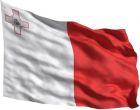 | First cycle: No fees apply for Maltese and EU nationals following first-cycle full-time courses at the University of Malta and the Malta College of Arts, Science and Technology (MCAST). Part-time courses are only offered by the University of Malta. The majority of fees for first-cycle part-time students courses are EUR 900 per year. Second cycle: An annual fee of EUR 400 applies for all Maltese and EU nationals following second-cycle full-time courses at the University of Malta. Students following courses offered jointly with foreign universities pay higher fees. Fees for full-time evening courses range from EUR 2 200 to EUR 9 666 per year (most common is EUR 3 200) and fees for part-time studies range from EUR 1 200 to EUR 5 550 per year (most common is EUR 1 600). International students pay fees for both first-cycle and second-cycle degree programmes, and these fees are higher than those paid by Maltese and EU nationals. |
Montenegro 2015/16 - student fees and grants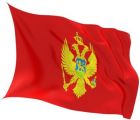 | 1st cycle Students not financed from the state budget pay tuition fees. In the first cycle at the public higher education institution University of Montenegro (the only public university) the fee is between EUR 400 and EUR 1 000 per year, depending on the study profile. The most common fee level is EUR 500. Self-financing students who pass all exams may become budget-funded students if there are places available on their study programme. Those students are chosen on the basis of the ECTS gained and academic performance during their studies. There is no distinction between full and part time students. 2nd cycle Fees at the second cycle are between EUR 1 500-2 000 per year. International students are charged the same fees as Montenegrin students. |
Norway 2015/16 - student fees and grants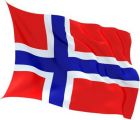 | No fees for either full or part time students at public higher education institutions, which cater for over 85 % of all students in Norway. Government-dependent private higher education institutions may on certain conditions charge tuition fees, and these fees must be used to benefit students. International students are treated as home students, and do not pay fees at public higher education institutions. |
Nothern Ireland 2015/16 - student fees and grants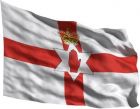 | 1st cycle full-time – fees are set by institutions but capped at GBP 3 805 for institutions with an access agreement outlining its provision of student support, including bursaries and outreach activities. Students are not required to pay up front and can apply for a loan to cover the full fee. Repayments are income-contingent and made at the rate of 9 per cent of income above the earning threshold of GBP 17 335. The Student Loans Company (SLC) also funds Northern Irish-domiciled students to study elsewhere in the UK where they may have to pay up to GBP 9 000. The average amount paid by SLC per student in 2013/14 was GBP 3 930. 1st cycle part-time – fees are unregulated and loans are not available. 2nd cycle – fees are unregulated and vary widely. The ‘most common’ figure of GBP 4 052 represents the indicative fee level for research students in 2015/16, set by Research Councils UK. 1st and 2nd cycle international students – fees are unregulated. |
Poland 2015/16 - student fees and grants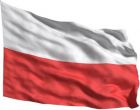 | Financial support is granted to students in the following forms: a needs-based grant available for students with a
low personal/family income, a needs-based grant available for students with disability, emergency grant/ allowance
and merit-based grant for best students. The income threshold to be eligible for need-based grants for students
with low family income is PLN 592.80-850.20 per person per year (from 1 November 2012).
The average amount of the need-based grant is PLN 2 783 (2011). The average amount of the merit-based grant is PLN 1 035 with a maximum of PLN 14 000. Students from the EU and EFTA countries and some other defined categories of students (e.g. students with refugee status) study according to the same rules as Polish citizens. Fees for international students other than these are decided by the HEIs. |
Portugal 2015/16 - student fees and grants | The annual tuition fee for 1st cycle courses, integrated 2nd cycle courses (mestrados integrados) and for 2nd cycle courses (mestrados) that are legally required after the 1st cycle course for the practice of a specific profession is fixed by each public higher education institution. It ranges from EUR 656.50 to 1 063.00. For all other cases in the 2nd cycle, tuition fees are fixed freely by public higher education institutions with no limits imposed. Those courses are not legally required for the practice of a specific profession. The minimum value of the above fees is calculated as a 1.3 times the national minimum wage at the beginning of each school year. The maximum wage value is updated every year according to the rate of inflation. Most institutions adopt the maximum value. International students pay higher fees than national students, and higher education institutions are autonomous to decide on the amounts charged. |
Romania 2015/16 - student fees and grants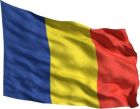 | Each university senate decides on the level of fees for all programmes. The senate also decides on exemptions based on need or merit. All students pay administrative fees to register, and the level of these fees is also decided by higher education institution. Fees are calculated based on the average allocation per physical student number of full-time students and the amount of state budget. In the academic year 2014/15, the fees range as follows:
International students pay fees. The value of the minimum fee is set by law for each field. |
Scotland 2015/16 - student fees and grants | For the first cycle, the Scottish Government pays the tuition fees for full-time Scottish and EU students (with the exception of those from England, Wales and Northern Ireland). For 2014/15, fees are set at GBP 1 820. Fees for part-time students are unregulated but are usually a proportion of the full-time equivalent fee. Scottish (and non-UK EU) students do not pay tuition fees to study at Scottish universities, but must pay full fees to study at universities in other parts of the UK. Students from England, Wales and Northern Ireland are required to pay fees to study at universities in Scotland. Fees are charged to students from the rest of the UK at a level of up to a maximum of GBP 9 000, in line with the maximum fee charged in the rest of the UK. The GBP 9 000 cap on fees for students from the rest of the UK is set by the sector as part of a voluntary agreement. Fees for international (non-EU) students are unregulated and set by the higher education institutions. The fee and support system has been developed for students in the first cycle. In the second cycle, fees are unregulated, differing by field of study and by mode of attendance (i.e. full- or part-time). |
Slovakia 2015/16 - student fees and grants | All students pay registration fees of EUR 10 to EUR 100 per academic year. Full-time students of public higher education institutions not exceeding the 'regular' length of study for the study programme concerned do not pay tuition fees. Students who exceed a 'regular' length of study, or who study two or more programmes concurrently in one academic year have to pay tuition fees which cannot exceed EUR 1 675 per academic year for both first and second cycle studies. Students admitted to an external/part-time study programme have to pay fees up to a maximum of EUR 1 960 per year in the first cycle and EUR 2 940 per year in the second cycle. Students in a study programme which is provided exclusively in a language other than the state language have to pay tuition fees, which are set by respective higher education institutions. Tuition and other fees at public higher education institutions cannot exceed 50 % of the average costs of full-time education. Non-EU students pay higher tuition fees of EUR 2 000 to 10 000/year. |
Slovenia 2015/16 - student fees and grants | No tuition fees for national and EU full-time students. They pay only registration charges (EUR 16-29), and costs of field work and excursions if required by study programme. Part-time students and international students pay the same fees. These are set by higher education institutions. Amounts range from EUR 1 210 to EUR 8 110 for the first cycle and from EUR 2 068 to EUR 15 831 EUR for the second cycle. |
Spain 2015/16 - student fees and grants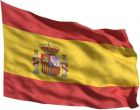 | The amount of fees is determined by the kind of studies, the number of ECTS taken and the number of exams failed in each subject. In addition, amounts differ between regions as each one has a different fee range. There is no difference in fees between full and part-time students. For international students (from outside the European Union) who do not have resident status in Spain, the fees can be increased, depending on the region. Exemptions from fees are possible and based on need criteria. In addition, large families and disabled persons have very significant discounts, and may even be exempt. |
Sweden 2015/16 - student fees and grants | No fees for Swedish/EU/EFTA/EEA full time and part time students. Other students pay fees since autumn 2011. Higher education institutions determine the size of the fees, based on the principle of full cost coverage. As of 1 February 2015, Swedish/EU/EFTA/EEA full time and part time students can be subject to tuition fees when taking part in international collaborations if the fees do not go to the Swedish institution and do not relate to the part of the education organised by the Swedish institution. |
Switzerland 2015/16 - student fees and grants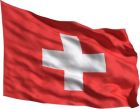 | Higher education institutions define their own fees. Fees usually comprise fees for administration (admission, registration, certification) and tuition. Additional mandatory contributions for examinations, libraries, sports facilities, social and cultural institutions are possible. Some categories of students pay reduced fees (students on leave of absence, medical students during their placement year, doctoral students). Students in difficult economic circumstances or part-time students can apply for a waiver or reduction of tuition fees at most higher education institutions. Some higher education institutions charge higher fees for both students from within and outside the EU. |
Turkey 2015/16 - student fees and grants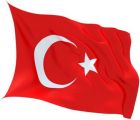 | Public university students following daytime education programmes do not pay fees. Public universities are financed by the Government and gain an additional income from students' fees (not more than 10 % of their income). Public universities also provide evening education for which fees can be charged. Fees in evening education at public universities range between TL 962 and TL 2 134. Non-profit foundation universities can receive a limited amount of financial support from the Government, but their income is mainly derived from fees. Foundation universities provide only daytime education with fees from TL 8 000 to TL 55 100. In the 2nd cycle, public universities do not charge fees. International students pay higher fees. |
Wales 2015/16 - student fees and grants | 1st cycle full time – fees are set by institutions but capped at GBP 9 000 for institutions with an approved tuition fee plan to promote fair access (to safeguard fair access for low income and other under-represented groups) and GBP 6000 for institutions without a plan. Students are not required to pay up front and can apply for a fee grant of up to GBP 5 190 and a fee loan of up to GBP 4 000 to cover the full tuition fee. The ‘most common amount’ shown represents the repayable fee of GBP 4 000. Repayments are income-contingent and are set at 9 % of earnings above the threshold of GBP 21 000; interest rates are Retail Price Index plus 3 %. 1st cycle part-time – fees are unregulated. Students can apply for a tuition fee loan of up to GBP 2 625 if they are studying in Wales, or GBP 6 750 if they are studying elsewhere in the UK. The loan amount depends on the course intensity, which must be at least 25 % for the student to qualify for the loan. 2nd cycle – fees are unregulated and vary widely. The ‘most common' figure of GBP 4 052 represents the indicative fee level for research students in 2015/16, set by Research Councils UK. 1st and 2nd cycle international students – fees are unregulated. |